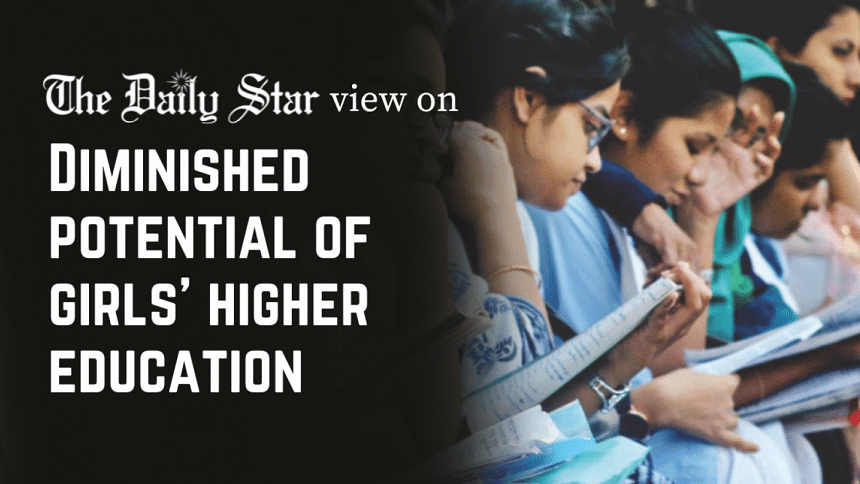Why are girls falling behind in higher education?

While girls' enrolment in schools at the primary and secondary levels has been pretty good in recent years, the picture is quite different in case of college, degree and master's level education. According to latest data by the Bangladesh Bureau of Educational Information and Statistics (Banbeis), girls' enrolment rate starts falling at the college level, and the curve keeps dropping from there on. While they accounted for 53.57 percent of total enrolment at the 9th and 10th grades, their enrolment at the graduation level was only 43.80 percent. This declining trend is concerning, to say the least, and needs immediate attention from the policymakers and other stakeholders.
While poverty and child marriage are generally considered major obstacles in the way of girls, sexual harassment is another impediment that slows or halts their progression to college and university level education. Moreover, a lack of women-friendly public transports and absence of girls' dormitories in the majority of our higher educational institutions contribute to the situation.
In poor households, parents often consider girls as a burden, and when it comes to sending their children to colleges and universities, it is the boys that usually get preference. Thus, while girls outnumber boys at the primary and secondary levels, their numbers dramatically fall after that. The correlation between poverty and early marriage becomes clear when you consider that 51 percent of young women in Bangladesh are married before their 18th birthday, according to Unicef. A majority of these girls cannot continue education after marriage.
There is then the issue of safety. Since many girls from rural areas have to travel a long distance to go to schools or colleges, they often face sexual harassment on the way and even inside public transports. Most colleges and universities neither have their own transportation system nor dormitories to support accommodation of girl students, which could save them from a lot of trouble. Thus, there is a growing sense of insecurity among parents, and it doesn't help either that the state of law enforcement is generally poor. The result is devastating not just for the girls, but for the country as well. Lack of work opportunities for female graduates is another deterring factor.
These barriers must be addressed if we want to reap the full benefit of education and educated women for our society. We urge the government and all relevant agencies and institutions to take note of the above situation. They must take measures to enable and facilitate girls' education up to the tertiary level.

 For all latest news, follow The Daily Star's Google News channel.
For all latest news, follow The Daily Star's Google News channel. 





Comments